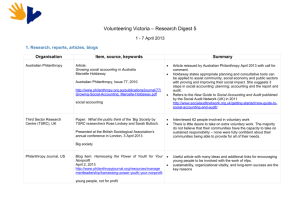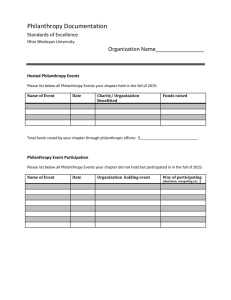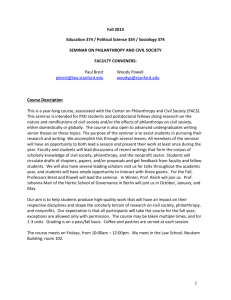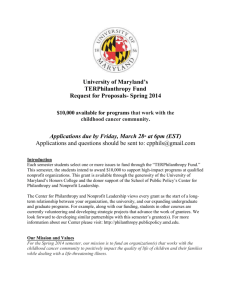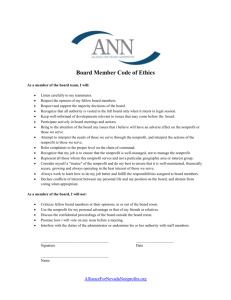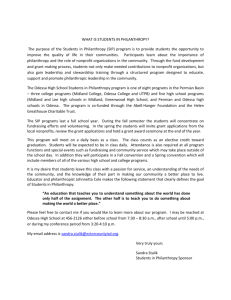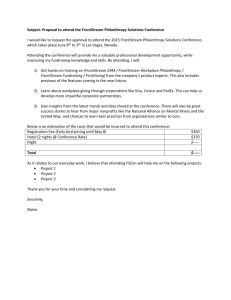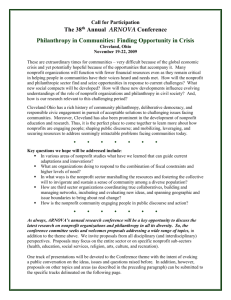University of Northern Iowa School of Health, Physical Education
advertisement
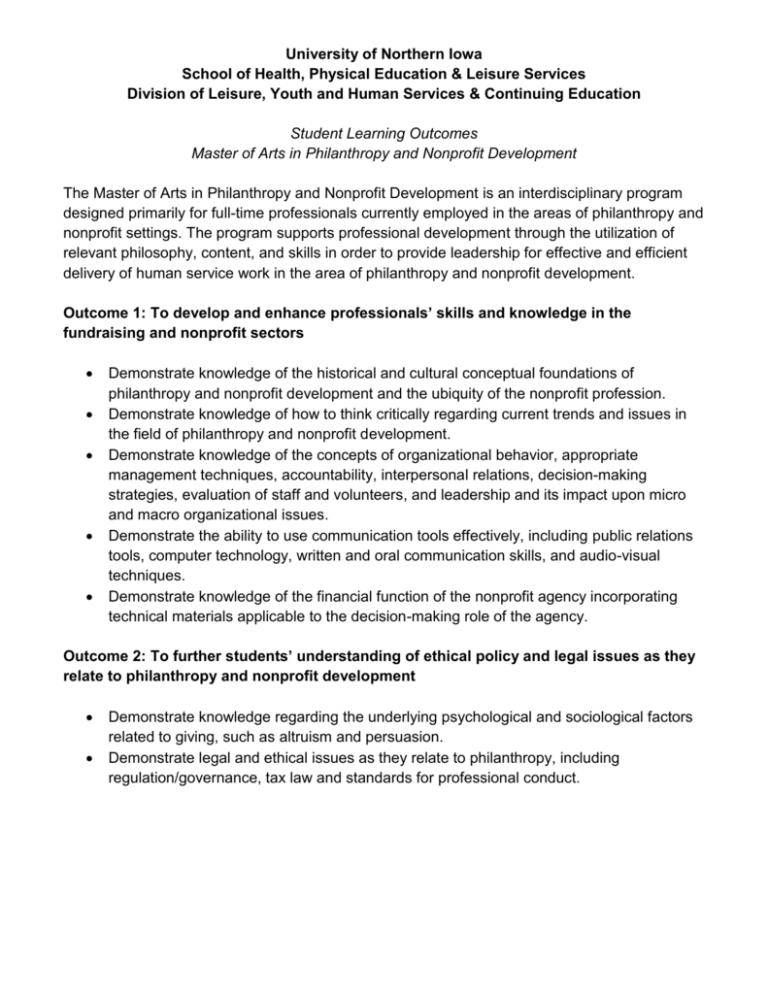
University of Northern Iowa School of Health, Physical Education & Leisure Services Division of Leisure, Youth and Human Services & Continuing Education Student Learning Outcomes Master of Arts in Philanthropy and Nonprofit Development The Master of Arts in Philanthropy and Nonprofit Development is an interdisciplinary program designed primarily for full-time professionals currently employed in the areas of philanthropy and nonprofit settings. The program supports professional development through the utilization of relevant philosophy, content, and skills in order to provide leadership for effective and efficient delivery of human service work in the area of philanthropy and nonprofit development. Outcome 1: To develop and enhance professionals’ skills and knowledge in the fundraising and nonprofit sectors Demonstrate knowledge of the historical and cultural conceptual foundations of philanthropy and nonprofit development and the ubiquity of the nonprofit profession. Demonstrate knowledge of how to think critically regarding current trends and issues in the field of philanthropy and nonprofit development. Demonstrate knowledge of the concepts of organizational behavior, appropriate management techniques, accountability, interpersonal relations, decision-making strategies, evaluation of staff and volunteers, and leadership and its impact upon micro and macro organizational issues. Demonstrate the ability to use communication tools effectively, including public relations tools, computer technology, written and oral communication skills, and audio-visual techniques. Demonstrate knowledge of the financial function of the nonprofit agency incorporating technical materials applicable to the decision-making role of the agency. Outcome 2: To further students’ understanding of ethical policy and legal issues as they relate to philanthropy and nonprofit development Demonstrate knowledge regarding the underlying psychological and sociological factors related to giving, such as altruism and persuasion. Demonstrate legal and ethical issues as they relate to philanthropy, including regulation/governance, tax law and standards for professional conduct. Outcome 3: To advance students’ knowledge of scholarly research, theories and models in the area of nonprofit organizational development, donor relations, grant writing, corporate/foundation relations, advocacy, public funding and evaluation/accountability Demonstrate knowledge of the purpose, procedures, interpretation, and application of research and evaluation methodology related to philanthropy and nonprofit development. Exhibit the ability to search academic data bases/tools. Creation of an evaluative report based on the ability to collect evaluative data in order to provide accountability. Express the skill of presenting theoretical knowledge and research/evaluative outcomes through written, electronic, or oral means. University of Northern Iowa School of Health, Physical Education & Leisure Services Division of Leisure, Youth and Human Services & Continuing Education Student Outcomes Assessment Master of Arts in Master of Arts in Philanthropy and Nonprofit Development The philanthropy and nonprofit development program use three major procedures for measuring outcomes of its master’s students. Student outcomes are measured at the course level through written products and class presentations geared to the objectives of each course. The Graduate College monitors the ongoing GPA of each graduate student and notifies each student and the division if it falls below a 3.0. To demonstrate the ability to apply and synthesize knowledge and skills developed during the program of study, each masters student is required to write a research paper under the supervision of his/her designated graduate faculty member. This paper addresses a topic related to the student’s field of study.
